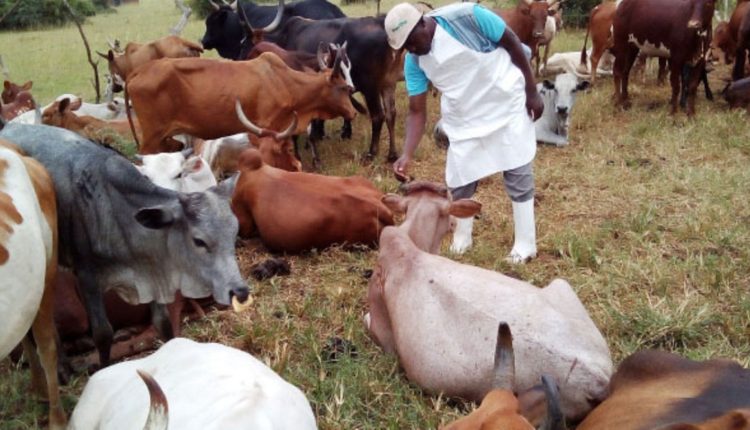The Kebbi State Government has advised residents of the state to be cautious and adopt precautionary measures in the wake of deadly anthrax outbreak in neighbouring Niger State.
Alhaji Ahmed Idris, the Chief Press Secretary to the state governor, said this in a statement made available to the media in Birnin Kebbi on Thursday.
Idris quoted the Permanent Secretary, Ministry of Animal Health, Husbandry and Fisheries, Dr Ahmed Ambursa, saying the residents need to be enlightened about the dreaded disease.
“The ministry wishes to inform the general public of an emergency situation at hand that requires urgent attention and prompt action in order to save lives.
“Barely a month after the report of an outbreak of Anthrax infection in Northern Ghana, the infection was confirmed in Niger State in Nigeria.
“This is to show how very fast the disease can spread because of our proximity and socio-cultural interactions within the regions of West Africa not to talk of within the country.
“The fact now is that the disease is now near us considering our proximity with Niger State,” he said.
Explaining what people should know about the disease, Ambursa said it was an infection that affects livestock and other mammals caused by a spore forming bacteria, adding that it affects humans too via inhalation of spore of the bacteria from contact with infected animals, animal products or affected surfaces.
According to him, it is deadly in both animals and humans if unnoticed and treated early, noting that in animals it is characterised by high fever, gastrointestinal conditions and frank blood oozing out of natural openings, like nose, mouth, ears and anus.
He said people get infected through inhalation of the bacterial spore that comes out of the blood of an infected animal or byproducts such as meat, hides and skin.
On what people should observe to avoid contact with sick or dead animals and their products, the permanent secretary said livestock owners should always be vigilant and report any sign of illness in their stock to the nearest veterinary personnel.
Ambursa also advised cattle traders (falke) to be cautious in cattle markets and avoid bringing in to the state any livestock or their products from the neighbouring countries and Niger.
He stressed the need for supervision and monitoring by veterinary authority to ensure that butchers slaughter animals at government designated abattiors.
“As of now any highly sick animal can be a suspect, therefore, do not slaughter such animals because doing so is exposing the causative agent to the environment if the animal is already infected. Always isolate sick animals and call for the attention of veterinary authority.
“Practice biosecurity measures through ensuring personal hygiene and disinfection of premises,” he advised.
He however assured that the state government was doing everything possible to stop the disease from entering into the state in view of “our proximity to Niger state”.
While advising people to be vigilant, the permanent secretary urged the general public to call any of the following telephone lines in case of any important information:
0701 179 7110, 0803 605 0495, 0803 280 6512, 0806 387 7298 and 0703 449 6442.








